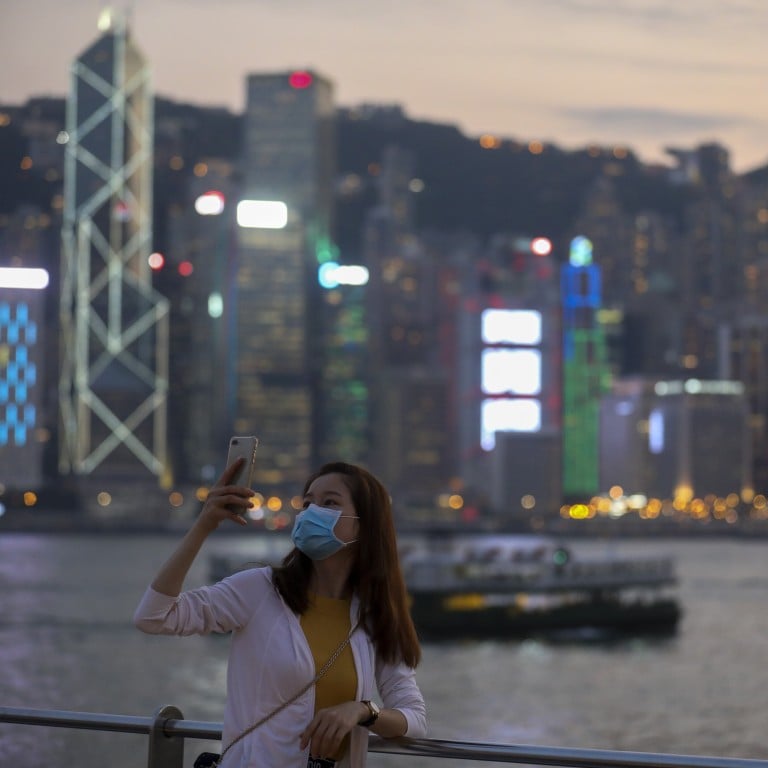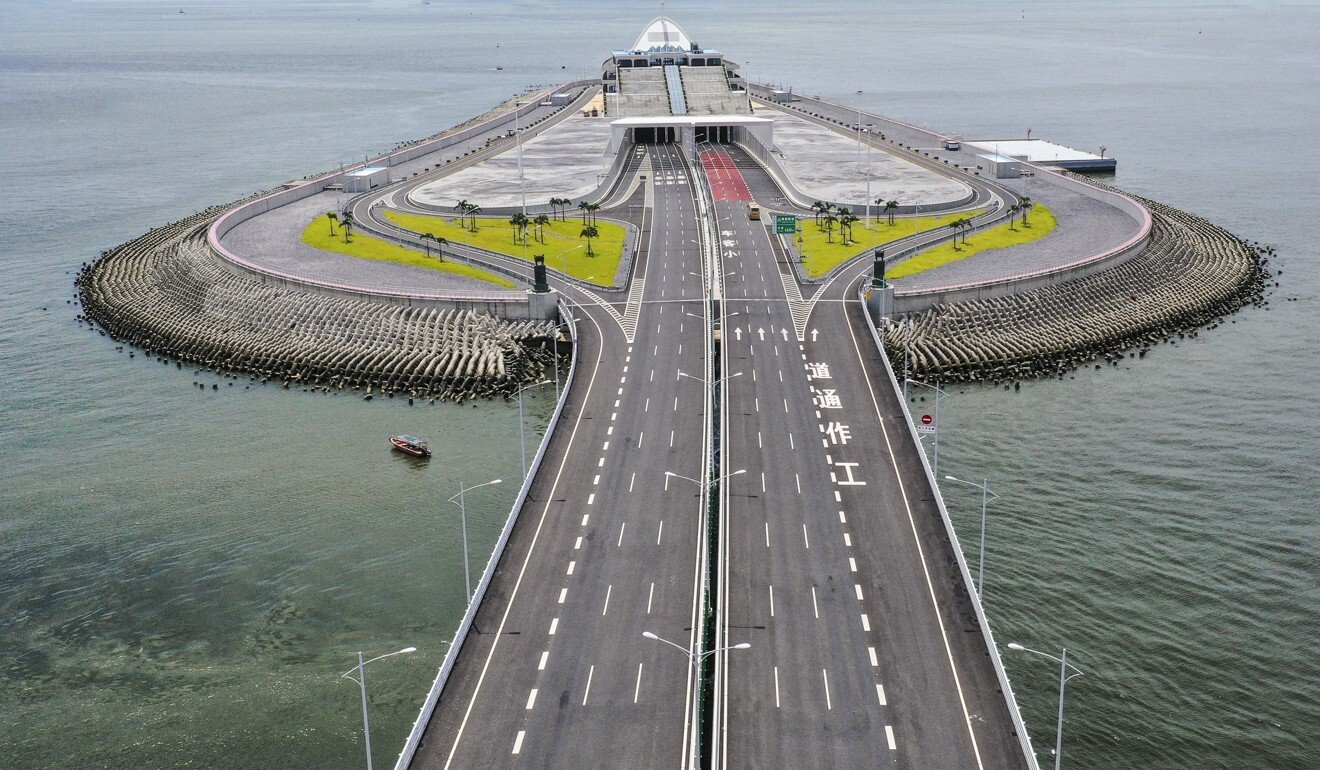
Hong Kong fourth wave: just 3.57 million arrivals in 2020 amid coronavirus pandemic – 36-year low for tourism hub
- Near-total collapse of travel leads to plummet from 2019’s 55.9 million, a year that had already seen numbers slide due to anti-government protests
- A year after first restrictions were put on entry, city effectively remains locked down to all but returning residents
The vast majority of 2020 arrivals came in the very first month of the year, the board noted.
Hong Kong recorded its first coronavirus cases on January 23 – two mainland Chinese tourists who arrived in the city via the high-speed railway station in West Kowloon and the city’s airport, respectively.

Nearly 12 months later, the city remains in near-total lockdown, with all but three border checkpoints – the Hong Kong-Zhuhai-Macau Bridge, Shenzhen Bay Port and the airport – closed since February.
Hope for a long-awaited travel bubble with Singapore, meanwhile, collapsed as a fourth wave of coronavirus cases hit the city in November.
Other travel restrictions have only been tightened since, with authorities in December banning flights from Britain and South Africa in a bid to keep a lid on imported cases carrying newly mutated coronavirus strains from those countries.
Overseas visitors have been banned from entering the city almost entirely, while the compulsory quarantine period for returning residents – aside from those arriving from mainland China – was upped from 14 to 21 days on Christmas Eve.
All three weeks of isolation must be spent at one of 36 hotels designated by the government.
Tourism Board chairman Pang Yiu-kai stressed that the tourism industry had been through an unprecedented tough year.
“As visitors couldn’t come to Hong Kong in person, we took the initiative to concentrate on improving the city’s atmosphere and ambience while maintaining its international exposure, to attract visitors back as soon as the Covid-19 situation eases,” Pang said.
Looking ahead, Pang said the city’s tourism board was well prepared for the resumption of travel later in 2021 once the pandemic stabilised.
But tourism is facing a muted start, as the annual Lunar New Year fireworks and lantern displays slated for next month were called off by the Leisure and Cultural Services Department on Friday.
While still devastating, the effects of the severe acute respiratory syndrome (Sars) outbreak in 2003 pale in comparison to the impact of Covid-19.
About 15.5 million passengers entered Hong Kong in 2003, a 6.2 per cent year-on-year decline from 2002, according to Tourism Board records.
To be frank, we remain quite pessimistic about travel in 2021
Hong Kong last had less than 3.5 million arrivals in 1984, according to records dating back to 1976 supplemented by the Tourism Board.
Perry Yiu Pak-leung, convenor of the Hong Kong Travel Agents’ Relief Alliance, said he hoped the government would continue to provide much-needed financial aid to the battered tourism industry, warning that the road to recovery was still shaky in 2021.
“To be frank, we remain quite pessimistic about travel in 2021,” Yiu said, “The loss of revenue in the industry is huge and many tourism workers lost their livelihoods.”
Yiu on Friday submitted a list of proposals to the Hong Kong government’s annual budget, co-signed by more than 20 travel trade representatives, calling for a dedicated fund to support the sector. Yiu estimated the tourism sector needed a HK$1 billion (US$129 million) lifeline to stay afloat in the short term.
The recommendations include speeding up inoculation among the general public and issuing approved vaccination certificates or health codes so that immunised persons can travel without quarantine.
“The first step is to start cross-border travel with mainland China because that’s where the bulk of travellers come from,” Yiu said, “And then, we hope the government can set up travel bubbles when the public health situation allows.”
Yiu also urged authorities to exempt travel agencies, airlines, hotels and guest houses from licensing fees for a year to ease their financial burden.
Tourism sector lawmaker Yiu Si-wing also remained downbeat about a tourism recovery for 2021.
“This year, if Hong Kong still can’t contain the coronavirus cases, then arrivals to the city won’t change much,” he said, adding that the Covid-19 situation elsewhere was also no better, as cases continued to rise in places such as Japan, Korea, Britain, Europe and the US.
He also said prioritising cross-border travel with mainland China would provide a much-needed boost for the sector, as the local tourism market was too small to make up for major losses in 2020.
“The biggest chance we have in forming a travel bubble sometime this year would be with Singapore, or maybe Taiwan,” Yiu said.

